detail profile s c3 b4jin kamiyama

Sôjin Kamiyama
Mitsugu Mita
atau dikenal sebagai
Peran Yang Di Mainkan Sôjin Kamiyama
 Struggling to elevate himself from his...
Struggling to elevate himself from his...Samurai I: Musashi Miyamoto 1954
Struggling to elevate himself from his low caste in 17th century Japan, Miyamoto trains to become a mighty samurai warrior.
 This 1932 adaptation is the earliest sound...
This 1932 adaptation is the earliest sound...The Loyal 47 Ronin 1932
This 1932 adaptation is the earliest sound version of the ever-popular and much-filmed Chushingura story of the loyal 47 retainers who avenged their feudal lord after he was obliged to commit hara-kiri due to the machinations of a villainous courtier. As the first sound version of the classic narrative, the film was something of an event, and employed a stellar cast, who give a roster of memorable performances. Director Teinosuke Kinugasa was primarily a specialist in jidai-geki (period films), such as the internationally celebrated Gate of Hell (Jigokumon, 1953), and although he is now most famous as the maker of the avant-garde silent films A Page of Madness (Kurutta ichipeji, 1926) and Crossroads (Jujiro, 1928), Chushingura is in fact more typical of his output than those experimental works. The film ranked third in that year’s Kinema Junpo critics’ poll, and Joseph Anderson and Donald Richie noted that 'not only the sound but the quick cutting was admired by many critics.
 Now hear this The studio that...
Now hear this The studio that...Show of Shows 1929
Now hear this. The studio that gave the cinema its voice offered 1929 audiences a chance to see and hear multiple silent-screen favorites for the first time in a gaudy, grandiose music-comedy-novelty revue that also included Talkie stars, Broadway luminaries and of course, Rin-Tin-Tin. Frank Fay hosts a jamboree that, among its 70+ stars, features bicyclers, boxing champ Georges Carpentier, chorines in terpsichore kickery, sister acts, Myrna Loy in two-strip Technicolor as an exotic Far East beauty, John Barrymore in a Shakespearean soliloquy (adding an on-screen voice to his legendary profile for the first time) and Winnie Lightner famously warbling the joys of Singing in the Bathtub. Watch, rinse, repeat!
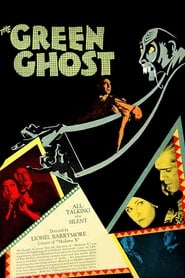 When a rash of murders depletes...
When a rash of murders depletes...The Unholy Night 1929
When a rash of murders depletes their number, a billionaire's employees are brought together at an Englishman's estate.
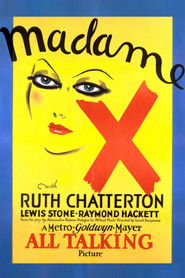 A young unfaithful wife and mother...
A young unfaithful wife and mother...Madame X 1929
A young, unfaithful wife and mother is thrown out by her cold, unforgiving husband, the Attorney General of France. She is barred from ever seeing her three year old son again despite her earnest attempts to make amends. For many years the mother seeks refuge overseas and in Absinthe. In the end, her son, a young and promising lawyer unknowingly defends her in court. Ruth Chatterton gives a marvelous performance in this early talkie in her portrayal of Madame X.
 The King of Kings is the...
The King of Kings is the...The King of Kings 1927
The King of Kings is the Greatest Story Ever Told as only Cecil B. DeMille could tell it. In 1927, working with one of the biggest budgets in Hollywood history, DeMille spun the life and Passion of Christ into a silent-era blockbuster. Featuring text drawn directly from the Bible, a cast of thousands, and the great showman’s singular cinematic bag of tricks, The King of Kings is at once spectacular and deeply reverent—part Gospel, part Technicolor epic.
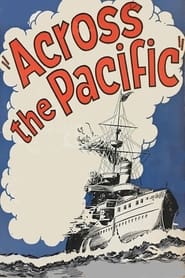 Following the SpanishAmerican War a soldier...
Following the SpanishAmerican War a soldier...Across the Pacific 1926
Following the Spanish-American War, a soldier is given the assignment of finding the leader of a band of rebels in the Philippines. In order to do this, he must romance Roma, a cabaret spy working for the rebels. This does not please the daughter of his commanding officer, whom he is romancing.
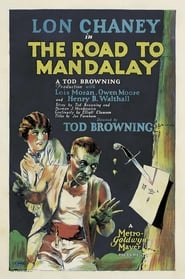 Joe a former sea captain whose...
Joe a former sea captain whose...The Road to Mandalay 1926
Joe, a former sea captain whose wife died during the birth of their child at sea, is now a pockmarked, disreputable divekeeper in Singapore where he indulges in shady operations with Herrick, known as The Admiral. They ship for Mandalay, where Joe's daughter lives with a priest, Father James, and tends a curio shop, unaware that her father regularly sends money to Father James for her support. Although his daughter clearly finds him abhorrent, Joe determines to take her away until he learns that The Admiral has fallen in love with her and plans to marry her. He persuades Father James (actually his brother) not to perform the ceremony, and The Admiral is shanghaied by Joe's men. The girl, suspecting Joe, goes to his brothel in Singapore and is about to be assaulted by Charlie, a lecherous Chinaman, when Joe intervenes and is stabbed. The Admiral comes to her rescue and escapes with her on a boat.
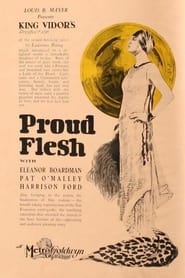 The snooty Fernanda decides to leave...
The snooty Fernanda decides to leave...Proud Flesh 1925
The snooty Fernanda decides to leave Spain to visit her uncle in San Francisco in order to escape the attentions of the dandy, amorous Don Diego, but he follows her. She is rescued from a wild taxi ride by a passerby who owns a huge plumbing company. Believing him to be a common plumber, she snubs him, but he pursues her and a romantic rivalry is born.
 A recalcitrant thief vies with a...
A recalcitrant thief vies with a...The Thief of Bagdad 1924
A recalcitrant thief vies with a duplicitous Mongol ruler for the hand of a beautiful princess.
 A samurai answers a villages request...
A samurai answers a villages request...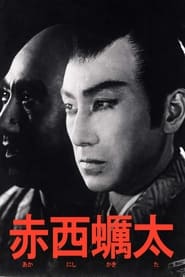 A samurai is ordered by his...
A samurai is ordered by his...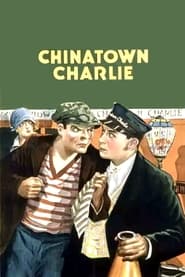 A likeable pickpocket happens to stumble...
A likeable pickpocket happens to stumble... A detective goes in search for...
A detective goes in search for...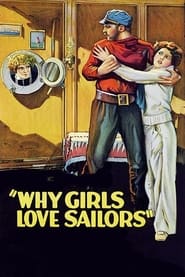 Stan is a sailor whose girl...
Stan is a sailor whose girl... A masked criminal who dresses like...
A masked criminal who dresses like...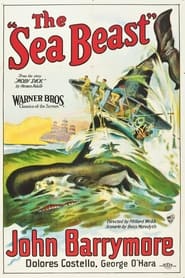 Based on Herman Melvilles novel Moby...
Based on Herman Melvilles novel Moby... Jether a shepherd is lured from...
Jether a shepherd is lured from...